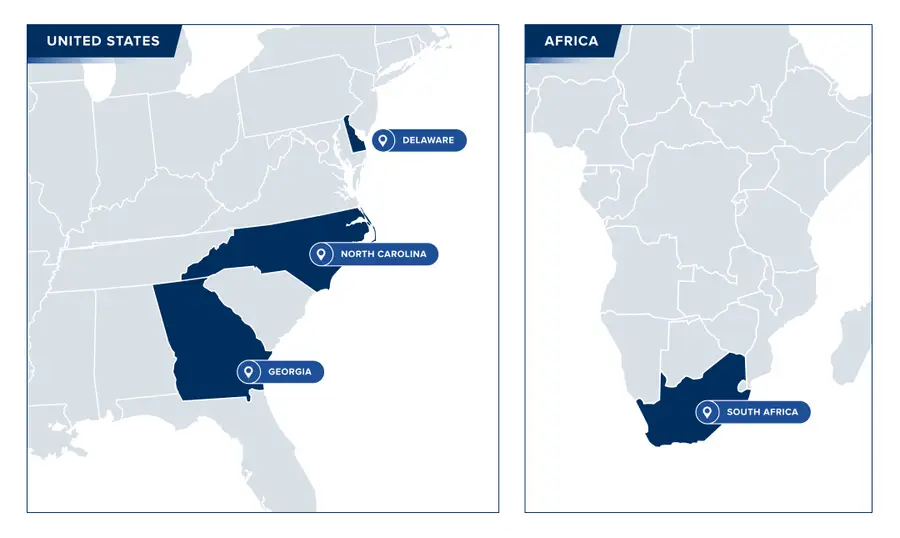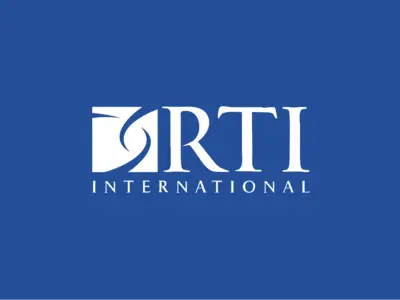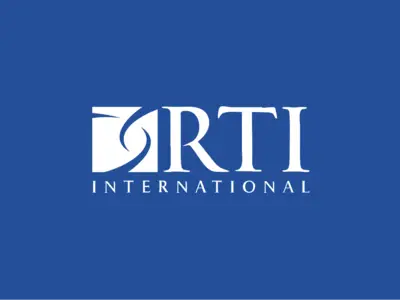Developing and testing the efficacy, effectiveness, and impact of biobehavioral interventions for key populations of women, couples, and adolescents globally for HIV and other related health outcomes.
The Substance Use, Gender, and Applied Research (SUGAR) program develops and tests the efficacy, effectiveness, and impact of interventions for key populations of women, couples, and adolescents locally and globally for HIV and related health outcomes in community-based and real-world settings to reduce substance misuse, sexual risk behaviors, health disparities, gender-based violence, and gender inequality. Using applied research that incorporates biobehavioral approaches, SUGAR partners with community agencies, and community, peer and youth advisory boards comprising citizens, professionals, and members from the community, to address social and biobehavioral issues through a gender lens.
Areas of expertise:
- Applied biobehavioral HIV prevention and treatment research (e.g., PrEP, ART)
- Community-based research
- Substance abuse interventions
- Key populations of women, couples, and adolescents
- Respondent-driven sampling and peer outreach workers
- Randomized controlled trials to determine biobehavioral intervention efficacy, effectiveness, and comparative efficacy
- Gender- and culturally appropriate mixed-methods data collection strategies
- HIV counseling and testing, drug and pregnancy testing, and referrals to community health services
- Implementation science to determine feasibility, acceptability, adoption and long-term sustainability in usual care settings
Dr. Wendee Wechsberg (Director, RTI Global Gender Center; Director, Substance Use, Gender, and Applied Research) with Dr. Felicia Browne (Senior Research Social Epidemiologist)
Partnerships & Affiliations
The SUGAR Program partners RTI’s scientific expertise with community agencies, and collaborative and advisory boards of citizens, professionals, and members from the community to improve the lives of people who use alcohol and other drugs. Substance abuse prevention partners include Bentech Technologies, Christiana Care, Positive Impact Health Centers, the UNC CFAR, Temple University, SisterLove, Inc., Setshaba Research Center, and the South African Medical Research Council. The SUGAR program is also affiliated with the RTI Global Gender Center, and the UNC Gillings School of Public Health, Duke University, and NC State University through adjunct positions.
Funding Resources for Global Substance Use & HIV Prevention Projects:
The SUGAR program’s projects have been funded by the Centers for Disease Control and Prevention, the UNC CFAR, and multiple institutes and centers of the U.S. National Institutes of Health (NIH). NIH funding includes the Eunice Kennedy Shriver National Institute of Child Health and Human Development, National Institute of Mental Health, National Institute on Alcohol Abuse and Alcoholism, and the National Institute on Drug Abuse.
Learn more about how RTI is supporting global gender equality via the RTI Global Gender Center, and RTI’s HIV prevention research.
Our Reach
Current Projects

Gathering Online for Dialogue and Discussion to Enhance Social Support (GODDESS)
Read More about Gathering Online for Dialogue and Discussion to Enhance Social Support (GODDESS)
Gathering Online for Dialogue and Discussion to Enhance Social Support (GODDESS)
With support from the U.S. National Institute on Alcohol Abuse and Alcoholism, this study will modify the mobile health (mHealth) intervention used in the NC Young Women’s CoOp project by adding content about pre-exposure prophylaxis (PrEP) and a virtual group component. The intervention will then be tested among young Black women in Durham and Wake counties in North Carolina. This project aims to reduce risk behaviors and promote women's health, including the increase of PrEP utilization.

Couples Health CoOp Plus
Read More about Couples Health CoOp Plus
Couples Health CoOp Plus
This HIV and substance use study is using a multilevel approach to help achieve the new Undetectable=Untransmittable (U=U) goals through increasing pre-exposure prophylaxis (PrEP) and antiretroviral therapy (ART) initiation and adherence and retention, while also addressing stigma in clinics toward young couples who use alcohol and other drugs and seek HIV services.

Prevention, Empowering, and Protecting Young Women in South Africa (PrEPARE Pretoria)
Read More about Prevention, Empowering, and Protecting Young Women in South Africa (PrEPARE Pretoria)
Prevention, Empowering, and Protecting Young Women in South Africa (PrEPARE Pretoria)
The HIV prevention project seeks to determine whether implementing a multilevel, woman-focused intervention, the Young Women’s Health CoOp (YWHC), for pre-exposure prophylaxis (PrEP) readiness, uptake, and adherence is a viable complement to the HIV prevention plan for the Government of South Africa. Specifically, this project aims to: increase uptake, of sexual and reproductive health (SRH) services and readiness and uptake of PrEP among adolescent girls and young women (AGYW) aged 16 to 24 who engage in high-risk sexual behaviors; and reduce their barriers to accessing SRH services by addressing and reducing stigma and discrimination (S&D) in clinics.

Young Women-Focused HIV Prevention: Seek & Test in North Carolina (NC YWC)
Read More about Young Women-Focused HIV Prevention: Seek & Test in North Carolina (NC YWC)
Young Women-Focused HIV Prevention: Seek & Test in North Carolina (NC YWC)
This HIV prevention study, supported by the National Institute on Drug Abuse (NIDA), is developing a mobile health application to deliver an HIV risk-reduction intervention. It will test the relative efficacy of intervention delivery via the app compared with face-to-face delivery. This intervention—for young, African American women—is an adaptation of the Women’s CoOp, an evidence-based intervention that has also been adapted globally. In collaboration with local health departments in North Carolina, this study aims to reach women aged 18 to 25 who have not been recently tested for HIV.

Improving the Integration of Mental Health and Substance Use Treatment into Ryan White-Funded Care Sites (IMPROV)
Read More about Improving the Integration of Mental Health and Substance Use Treatment into Ryan White-Funded Care Sites (IMPROV)
Improving the Integration of Mental Health and Substance Use Treatment into Ryan White-Funded Care Sites (IMPROV)
This R34 study, funded by NIMH, is partnering with Ryan White clinics and SisterLove, Inc., to adapt a stigma-reduction training, develop a prescribing platform to help providers offer pharmacotherapy for mental health disorders and/or alcohol use disorder, and test the feasibility of these tools in Ryan White clinics in the Atlanta, Georgia area.

The EMPOW-HER Project
Read More about The EMPOW-HER Project
The EMPOW-HER Project
The EMPOW-HER Project: Educating Medical Providers on Women-Controlled HIV Prevention to Expand Reach to African American Women in Atlanta/Implementing PrEP into Non-Title X Settings to Reduce HIV Disparities among African American Women in the Atlanta MSA
This supplement project, funded by UNC Centers for AIDS Research (UNC CFAR), is partnering with SisterLove, Inc to adapt and pretest an online PrEP training to promote PrEP prescribing among reproductive healthcare providers in the Atlanta MSA who serve African American women. We aim to increase providers’ PrEP knowledge and self-efficacy to increase PrEP access among African American women.
Funded by UNC Centers for AIDS Research grant P30 AI050410.

Carolina CoOp
Read More about Carolina CoOp
Carolina CoOp
This supplemental project, funded by the UNC Center for AIDS Research, is an implementation pilot in collaboration with Mecklenburg County Public Health in North Carolina that aims to reach and retain African American adults in HIV prevention and treatment and ultimately to reduce HIV disparities. Although study activities were delayed for this project due to COVID-19, the team is excited to proceed with virtual focus group discussions for pre-implementation phase activities to adapt and refine the tailored intervention and looks forward to the implementation stage.

Safe4both Integration of Mobile Technologies with Case Management
Read More about Safe4both Integration of Mobile Technologies with Case Management
Safe4both Integration of Mobile Technologies with Case Management
This collaborative substance abuse prevention project, supported by NIDA and primed by Benten Technologies, is designed to improve the efficiency and timeliness of collaborative care management for the case manager and the postpartum mother with a substance use disorder by providing an electronic Plan of Safe Care (ePOSC) accessible via mobile phone or tablet.

Individual Breastfeeding Support with Contingent Incentives among Low-income Mothers
Read More about Individual Breastfeeding Support with Contingent Incentives among Low-income Mothers
Individual Breastfeeding Support with Contingent Incentives among Low-income Mothers
This project, funded by Eunice Kennedy Shriver NICHD, uses an established behavioral approach to incentivize breastfeeding behavior on a monthly basis for 6- and 12-month follow-ups among postpartum mothers enrolled in the Special Supplemental Nutrition Program for Women, Infants, and Children. We will track medical incidents, infant weights, and the costs associated with the intervention.

Mitigating the Outcomes Associated with the Injection Drug Use Epidemic in Southern Appalachia
Read More about Mitigating the Outcomes Associated with the Injection Drug Use Epidemic in Southern Appalachia
Mitigating the Outcomes Associated with the Injection Drug Use Epidemic in Southern Appalachia
This project, funded by NIDA, provides expertise in infectious disease surveillance and outbreak investigation, statistical analyses, and state and local health department operations and serves as primary liaison with state and local public health officials. We are assessing prevention and treatment resources for opioid users in western NC and identifying ways to improve capacity over time by evaluating the gender differences of addiction with injection drugs. This includes training health care providers to provide hepatitis C virus care and other services to people who inject opioids; employing bridge counselors to link people who use opioids to services across different settings; and establishing syringe service programs to reduce opioid-related morbidity and mortality.











